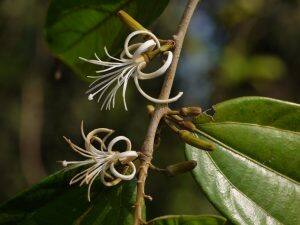Don’t Miss Out on the Latest Updates.
Subscribe to Our Newsletter Today!
Alangium: Precautions, Side Effects And Benefits Of Ankol

Ankol: Uses, Benefits And Effects
The Ayurvedic medical system has contributed to humankind's total physical, mental, and spiritual development for almost 5000 years. In Ayurveda, combinations are given a lot of weight. Combination in this context means that many herbal forms work together to promote health. Similar therapeutic qualities can be found in abundance in the alangium plant's remarkable health benefits. It is also utilized in Ayurveda to trigger vamana and virechana during panchakarma. What is Alangium? We will explain this to you in this article today. What are its safety precautions, adverse effects, and advantages?
Medicinal Properties Of Alangium (Ankol)
Because all of alangium's parts leaves, roots, fruit, and bark are used to treat various diseases, it is recognised as a particular herb. In India, it is extensively available. In some regions of India, it is frequently referred to as Ankolam. The scientific term for ankol is alangium. Due to its pungent and astringent flavour, all skin disorders, phlegm, and blood problems are said to be cured by allangium in Ayurveda.
Precautions When Taking Alangium (Ankol)
Alangium (Ankol) usage requires some things to be handled with extreme caution. The following are considerations to take in mind when taking Ankol:
- Never exceed the recommended dosage. More medication won't make your symptoms go away.
- Instead, the circumstance can be direr, resulting in an overdose.
- If you miss a dose, you must take it immediately to ensure the medication will continue to work.
- Alangium should not be used by pregnant women or people with other disorders because it can have dangerous side effects.
Side Effects Of Alangium (Ankol)
Along with the benefits of ingesting alangium, there are also drawbacks. Alangium is usually thought to be safe to consume. However, there are several drawbacks to eating it in larger quantities than recommended:
- Stomachache
- Excessive consumption can interfere with sleep.
- Suffering from nausea
- Experiencing constipation
- Appetite loss
- Burning and unsettled stomach
Benefits Of Alangium (Ankol)
This herb can help with a variety of health issues and symptoms. When it comes to Alangium advantages, Ankol contains a variety of therapeutic characteristics, including:
- Alangium leaves include therapeutic compounds that can help reduce symptoms such as shortness of breath, nasal congestion, and asthma.
- The juice extracted from the leaves, fruits, and twigs of Alangium contains anti-inflammatory effects. In addition, its ingestion alleviates joint discomfort, oedema, and redness.
- Alangium has a variety of minerals, including potassium, which aids in the prevention of diarrhoea. It also prevents the body from becoming feeble.
- It is such a robust plant that it promotes heart health and lowers blood pressure and cholesterol levels above normal.
- Additionally, it is the treatment of choice for haemorrhoids. Finally, its vitamin C content is thought to be beneficial for piles.
- The patient can be treated utilizing the leaves and fruits of Alangium, even in severe infections like dengue. For example, when you have a high fever, apply heated leaves. Additionally, treating dengue with dry ginger and powder from its roots is possible.
- A neurological condition known as epilepsy causes the patient's brain to stop functioning, usually temporarily. Alangium functions for you in this scenario as an at-home and ayurvedic recipe. The availability of tannin and steroids in its leaves.
Dr Chanchal Sharma gave the data for this article; thus, use it only after conferring with a professional. Also, talk with a physician to select the correct dosage and proper ingestion.



